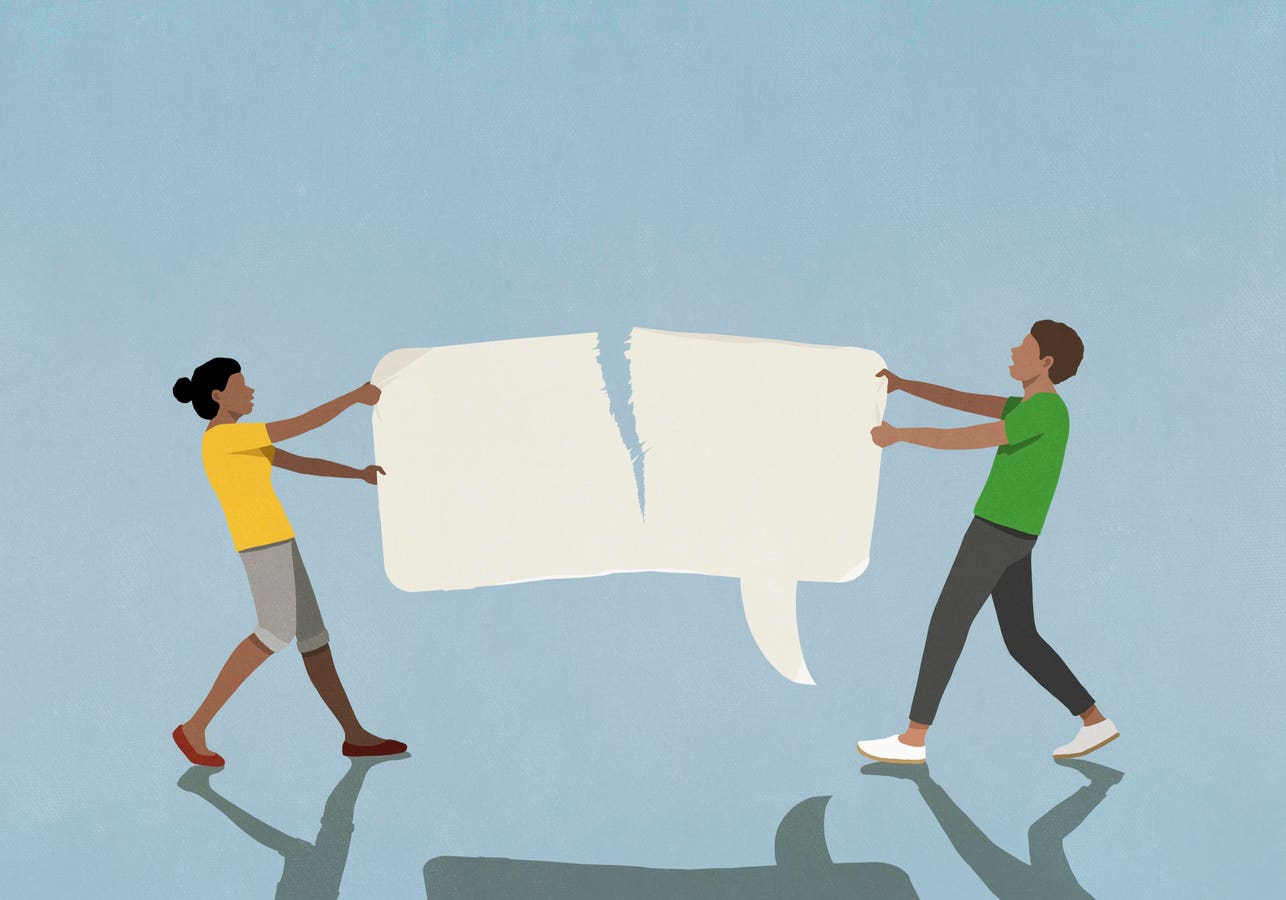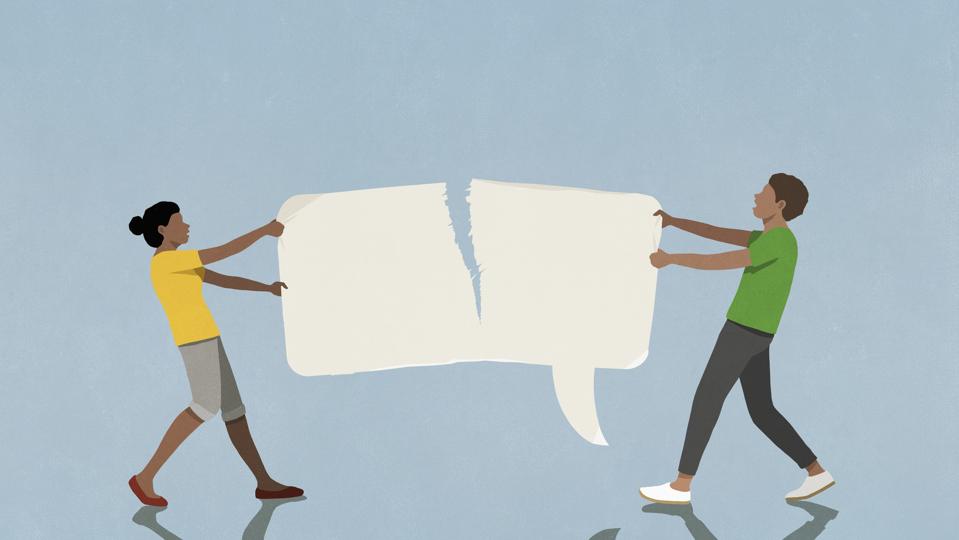Subtle but recurring conflicts chip away at a relationship’s foundation. You think it’s just another … More
Not all breakups come crashing in with shouting matches and ultimatums. Some quietly build their case over time, fed by seemingly “minor” fights that repeat like a broken record. They are just loud enough to irritate without sounding a loud alarm.
Many couples often come to therapy feeling confused about why their relationship feels so unstable despite not having any “big” problems. And more often than not, it’s the seemingly inconsequential, everyday conflicts — the ones we tend to brush aside — that quietly shake the foundation of a relationship.
Here are three fights that don’t look like breakup material at the first glance but usually are, when you look deeper.
1. The ‘It’s Not A Big Deal’ Dismissal Fight
This fight looks minor. One partner brings up something that upsets them, like feeling excluded at a gathering or dismissed in a conversation, and the other replies with, “You’re overthinking it,” or “Why make a big deal out of nothing?”
It doesn’t escalate. It ends quickly. But what’s actually happening is a breakdown in emotional responsiveness where one partner is reaching out for attunement, and the other is pulling away.
Recent research published in Psychological Reports highlights why this pattern is more harmful than it appears. A dyadic study of 240 mixed-gender couples found that perceived emotional invalidation or the persistent feeling that your emotions are dismissed or minimized, is significantly associated with increased psychological distress in both men and women.
For women, notably, this distress also predicted lower relationship satisfaction, both for themselves and their partners.
Emotional invalidation chips away at a person’s sense of security in the relationship. Eventually, the dismissed partner may begin to doubt their own feelings, suppress their emotional needs or simply stop bringing them up because for them, it’s just safer not to. What remains is silent resentment and emotional distance.
What makes this kind of fight especially insidious is that it’s rarely seen as serious. But its cumulative impact, especially when it follows a gendered pattern, is highly significant. As the research shows, the distress caused by these micro-invalidations have an outsized effect, impacting how both partners experience the relationship.
2. The Scorekeeping Fight
No one enters a relationship planning to keep score. But over time, it can creep in quietly through familiar refrains:
- “I always make the effort. When’s the last time you planned something for us?”
- “You’re acting like I don’t do anything around here.”
- “You didn’t support me when I needed you — so why should I now?”
These are not just complaints. They’re emotional invoices. And they reveal a deeper shift from connection to calculation. Scorekeeping often stems from a real imbalance with one partner feeling emotionally or practically unsupported. But instead of leading to open dialogue, it morphs into a tit-for-tat dynamic, where past sacrifices are tallied and present generosity is withheld until it’s been “earned.”
A 2019 study published in the Journal of Social and Personal Relationships lends strong evidence to how corrosive this mindset can be. In a 28-day daily diary study of cohabiting couples, researchers found that individuals with a high “exchange orientation,” such as those who closely monitor the give-and-take in their relationship, experienced lower intimacy on days when conflict occurred, compared to those with a low exchange orientation.
Even after accounting for mood or general negativity, the scorekeeping mindset itself made conflicts feel heavier, and more personally threatening.
In other words, it’s not just the conflict that strains the relationship, it’s the lens through which the conflict is viewed. When a partner is attuned to fairness in a transactional sense, even small disagreements may be perceived as evidence of imbalance or disrespect. This can escalate minor conflicts into emotionally disproportionate responses.
Over time, this leads to a relational atmosphere where giving is no longer an act of love but a conditional exchange. Generosity starts requiring repayment. Gratitude turns into bargaining. And intimacy becomes harder to access, especially during moments of tension — just when it’s needed the most.
And that’s when the partnership stops feeling like a safe space and starts feeling like a negotiation table.
3. The Same Fight But Different Variations
Some couples don’t fight often. But when they do, it’s the same fight over and over again. It simply shows up in different disguises. One week it’s about the dishes. Next, it’s about parenting. Then it’s how late someone got home, or how a text went unanswered.
The topics change, but the emotional undercurrent stays the same: one or both partners feel unimportant, unseen or unacknowledged.
These repeated fights are rarely about surface-level issues. They’re about unmet emotional needs. The need to feel respected, prioritized, emotionally safe. But instead of addressing the deeper pattern, the couple gets stuck in the specifics. They argue about what happened, not what’s happening between them right now at a deeper level.
According to Dr. John Gottman, when this dynamic becomes chronic, it creates a relational state known as negative sentiment override — a condition in which partners develop a consistently negative filter through which they interpret each other’s behavior. Even neutral or well-meaning gestures are perceived as selfish, passive-aggressive or hostile. A partner’s delay is not seen for what it is, instead, they’re seen as inconsiderate. A missed call doesn’t feel like just an oversight, it feels like rejection.
When this pattern takes hold, it’s not the fight itself that wears couples down. It’s the emotional exhaustion of reliving the same unresolved conflict in different forms. The frustration compounds. The empathy erodes. And what could have been an opportunity for repair becomes yet another loop in an endless cycle.
So, What Can You Do?
If you’ve recognized yourself in any of these fights, it doesn’t mean your relationship is doomed. But it does mean it’s time to pay attention. These patterns tend to compound over time instead of correcting themselves.
Here’s what helps, and how you can implement it:
- Name the pattern, not just the incident. Repeated arguments often feel exhausting because they seem unsolvable, but that’s usually because we’re focused on “content” instead of “process.” When you say, “This feels like one of those times we fall into the same cycle,” you shift the conversation from blame to awareness. It invites both partners to step back and reflect on the dynamic, rather than getting lost in defending positions. Naming the pattern builds insight, and insight leads to change.
- Validate before problem-solving. Emotional disconnection often stems from feeling unseen. When someone is distressed, leading with a solution, even if it’s a good one, can feel dismissive. A simple, “I hear you, and that sounds painful,” signals that you are there with them emotionally. It helps regulate emotion, creating the safety needed for collaboration. Only after emotional needs are acknowledged do most people feel ready to engage in problem-solving.
- Turn toward repair. According to Gottman, it’s not the presence of conflict that predicts relationship failure. It’s actually the lack of repair. Couples who recover quickly after disagreements build trust and emotional resilience. Repair can be a gesture, an apology or a shared joke, anything that communicates, “We’re still on the same team.” The goal isn’t to erase conflict, but to restore connection after it.
Breakups often happen “emotionally” before they happen “logistically.” The couples that make it are the ones who notice when the quiet fights start to sound louder than they used to, and take aligned action to save the relationship.
Think you’re doing fine as a couple but still feel a little disconnected? Take this research-backed Relationship Satisfaction Scale to see how emotionally aligned you and your partner really are.









